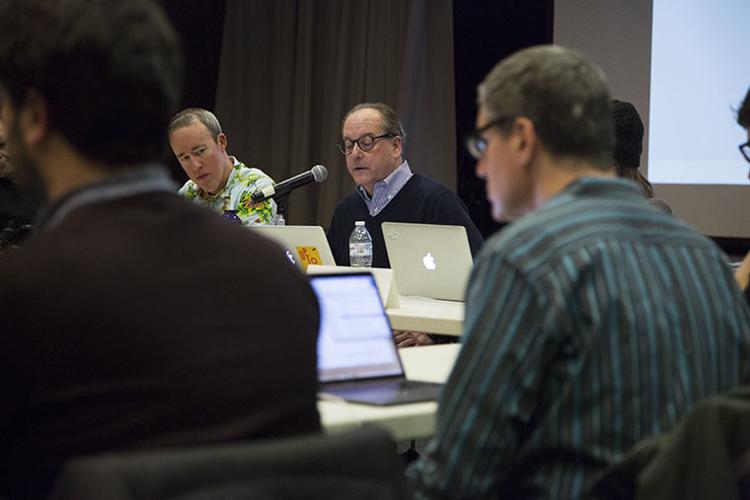Columbia one of ‘healthiest’ institutions, says associate provost to Faculty Senate
March 19, 2019

Columbia will remain in the Higher Learning Commission’s open pathway, which is recommended exclusively to the healthiest institutions accredited by the commission, according to Associate Provost for Accreditation and Assessment Neil Pagano. The decision grants the college accreditation for the next 10 years.
The decision, discussed during the March 8 Faculty Senate Meeting held at Stage Two, 618 S. Michigan Ave., comes after the Commission’s Nov. 5 and 6 campus visit.
Open pathway institutions are visited by the HLC every 10 years, while standard pathway institutions receive team visits twice every 10 years. The open pathway is one of three options college’s can select to maintain their accreditation, and allows the college to pursue projects that address any current needs or aspirations.
Examples of achievement the HLC noted in its report included: Columbia’s commitment to connecting the campus to Chicago through “Big Chicago” courses, faculty who model engagement and relevancy in their field and the college’s view of diversity, equity and inclusion as an essential part of a student’s education.
Forums about the accreditation process will be open to faculty, staff and students in the Ferguson Theatre, 600 S. Michigan Ave.
Forums will be held on the following three dates: March 19 from 10–11 a.m., March 20 from 12–1 p.m. and March 21 from 2–3 p.m.
The accreditation process starts with the college submitting an assurance argument which must demonstrate how Columbia has met the HLC’s five criteria for accreditation.
Pagano said he was honest about the college losing nearly half of its enrollment in the past 10 years while writing the assurance argument.
The HLC wants the college to submit a commission report on efforts made toward recruitment, enrollment and finances by Nov. 6, 2020.
Pagano noted the college submits enrollment numbers and financial conditions to the HLC every year.
“This is nothing more than a longer summary of where we’ve been, where we are and where we’re going in terms of enrollment and finances,” Pagano said.
During the meeting, the Senate also approved the elimination of the requirement for all majors to take one writing intensive course to fulfill graduation requirements, taking effect in fall 2019.
The proposal was introduced to the Senate by Paige Cunningham Caldarella, associate chair and associate professor in the Dance Department and member of the Academic Affairs Committee.
“My understanding of it was the writing intensive designation was not being audited in any way so that there was no cross-college monitoring of it, so it essentially was meaningless,” said associate professor in the Theatre Department Frances Maggio.
The Senate also decided to endorse the newest draft of the phased retirement plan, which will head to several board committees before final approval or disapproval by the Board of Trustees in May.
If the Board of Trustees approves the plan, faculty seeking retirement will have the opportunity to apply this fall.
According to Maggio, who was a member of the Phased Retirement Committee, the phased retirement plan is not an expansion of the Voluntary Separation and Incentive Program announced in a March 6 email.
VSIP is only offered to specific departments mentioned in the email, while phased retirement is available to all tenured associate and full-time professors.
Faculty members who are eligible for phased retirement must be at least 60 years old and have had 15 years of continuous service to the college. In comparison, faculty members who are eligible for VSIP must be at least 62 years old and have had 10 years of service with the college as of March 31.
“For many people, it’s difficult to retire,” Maggio said. “Being able to slowly cut down and wean yourself away is important.”







